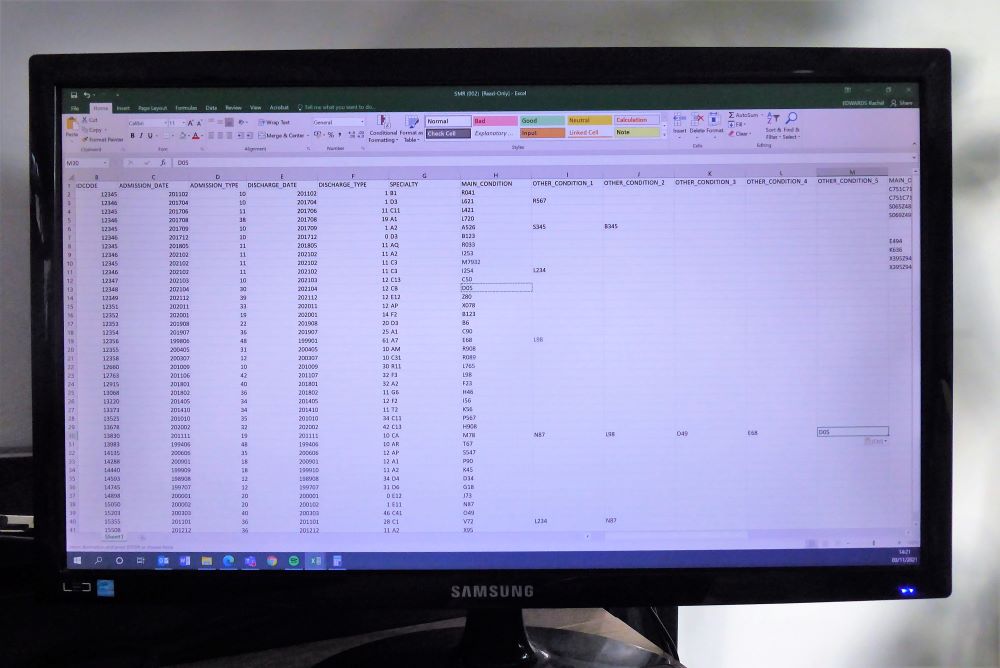
What are Electronic Health Records?
Patient data is an essential part of the healthcare we receive from the NHS. These records are kept electronically by the NHS and are routinely updated after most of our NHS visits. This helps medical staff monitor our health over time.
They're known as Electronic Health Records. They can include details of prescriptions you've been given, health conditions you've developed, information on hospital visits and more.
In Scotland, the records are held using what's known as the Community Health Index number, or CHI number for short. It's a way of identifying your data without personally identifying who you are.
You can only be identified if this number is linked to your name. Only trained people in the NHS can access the link between your CHI number and your name. These details are stored in a secure system and are not shared with researchers. There are strict rules about what the data can and can't be used for. These controls are in place to protect the privacy of NHS patients.
What are Electronic Health Records used for?
The NHS links the de-identified Electronic Health Record data across different approved research communities, that apply for access. By allowing this, health conditions may be better understood. The data could also be used to develop new drugs or treatments, for conditions such as cancer, heart disease, eye disease and more.
In addition, this data can help monitor the safety of drugs, vaccination and other treatments. It helps make sure that a good standard of healthcare is being provided across the UK, now and in the future. Essentially, these records could help the NHS find new ways to improve healthcare.
What are Viking Genes doing with them?
These NHS records include a highly accurate register of people in Scotland who have been diagnosed with cancer. Entries in this register, which include volunteers from the Orkney Complex Disease Study (ORCADES), are now being studied by researchers at the University of Edinburgh. Working with colleagues at the University of Aberdeen, they are comparing reported cases of breast cancer against genetic data in the ORCADES study.
They want to study the links between a rare variation in the BRCA1 gene, found in some Orcadians, and breast cancer. The researchers hope to find out if the rare genetic variation increases a person's chance of getting breast cancer or ovarian cancer. The results should further help the planning and delivery of genetic services and treatments by the NHS.
This study is ongoing but we'll let you know as soon as we have published this latest research!

